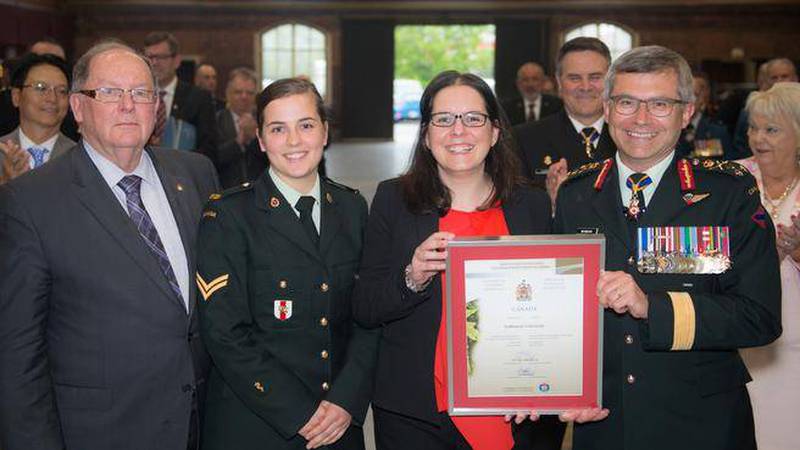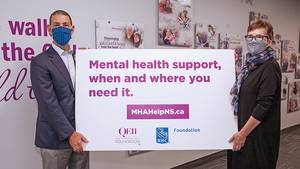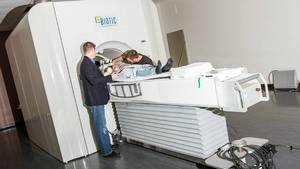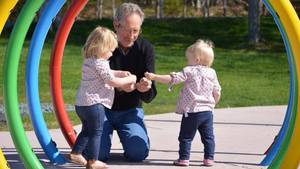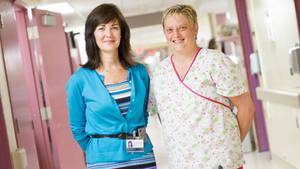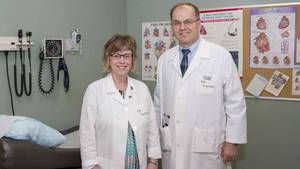Every day, Nova Scotians face a host of variable health challenges. Fortunately, the QEII Health Sciences Centre is home to world-class healthcare professionals who are always on the cusp of new and innovative treatments.
One such researcher is Dr. Olga Theou. Originally from Greece, she completed her Master of Science at California State University, where her proximity to the Center for Successful Aging sparked a life-long interest.
“I started working with older adults there,” she says. “My interest grew and I focused my master's degree in gerokinesiology, an exercise science with a specialization in aging.”
After earning her PhD in Health and Aging from the University of Western Ontario, Dr. Theou came to Halifax in 2011 to work on her postdoctoral fellowship at Dalhousie University with Dr. Kenneth Rockwood.
“He is, I would say, number one in frailty research worldwide,” she says.
Many key appointments followed. In September 2014, Dr. Theou received an affiliate scientist appointment at the QEII. One year later, she became a research scientist in geriatric medicine at Dalhousie University. In January of this year, she was named assistant professor with Dalhousie’s Department of Medicine.
During this time, Dr. Theou has been widely praised by her peers for generously sharing the results of her research.
“Knowledge translation has more of an effect at the QEII than in a university environment,” she says. “Findings can be applicable for healthcare professionals in their daily practice.”
This synergy is particularly relevant to our region.
“Nova Scotia has an aging population,” she says. “It’s a challenge but we shouldn’t see it as a negative thing. With the researchers studying aging at the QEII, we have an opportunity to lead the work on it.”
Many aspiring, young researchers and medical professionals credit Dr. Theou for being a positive influence on their education and career path. For Joanna Blodgett, Dr. Theou was a pivotal member of her supervisory committee when she began her MSc in community health and epidemiology at Dalhousie University in 2012.
“Knowing little about research and unsure of career options at that time, Dr. Theou provided invaluable guidance and was an incredible mentor for both my thesis dissertation and further development as a researcher,” Joanna says.
“I truly believe that it’s our job to do that,” Dr. Theou says. “There’s a lot of struggle, stress and anxiety around academia and research, so I think it’s our responsibility to help the newer generations.”
Dr. Theou notes that there are many additional benefits to this as well.
“The people we train move to different locations, resulting in collaborations which help our own research.”
It’s a sentiment shared by Joanna, who is now working on her PhD in Epidemiology and Public Health at University College London.
“Despite living abroad, we communicate regularly, collaborate on a number of research projects and if I need guidance or advice about my PhD and career path, I can count on Dr. Theou.”
For Dr. Theou, coaxing enterprising minds like Joanna back to Nova Scotia is a huge priority.
“Although it’s important for researchers to live and train in different environments, we need to be competitive to bring them back so they can start giving back to our society,” she says.
For Dr. Theou, the QEII is the ideal setting for this.
“I like getting to know clinicians and seeing patients every day,” she says. “This daily interaction helps our research because you create all these informal connections with people.”
“The QEII is the largest teaching hospital in Atlantic Canada for the development of healthcare professionals,” Joanna adds. “Dr. Theou plays a large role in the often-underappreciated mentorship and development of future researchers and scientists.”

